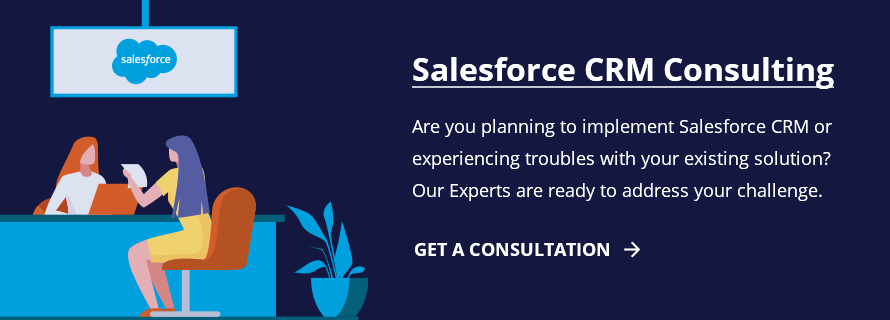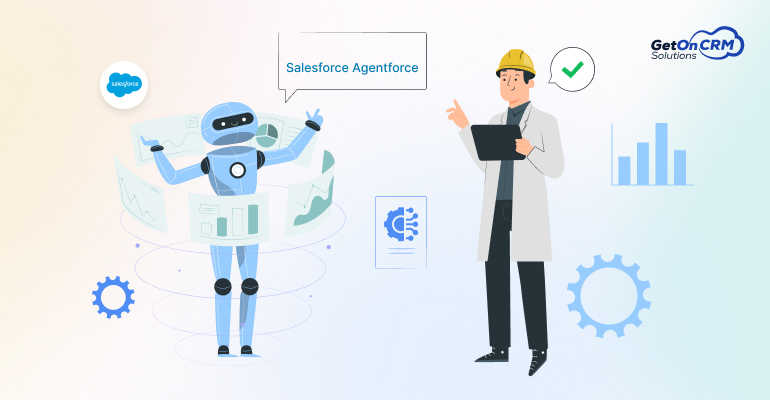Both Sales Cloud and the Service Cloud are the essential modules of Salesforce. Service Cloud emphasizes on the cases and the services. It helps the companies to sell their products as well as services. Sales Cloud is the module that allows the companies to emphasize potential lead generation, increased sales, and opportunities. Even though there are certain similarities between both modules, they are still different from one another in certain aspects.
In this article, you will know about some of the key differences between the sales cloud and service cloud in terms of features and other aspects.
Also read: Trends to Watch Out for Salesforce Development Services in 2020-2021
Features of Sales Cloud and Service Cloud
Sales Cloud and Service cloud has many overlaps of features in their functionalities. But some of the additional features are found in the Service Cloud modules over Sales Cloud. Here are the feature details of the two modules of the Salesforce:
Sales Cloud Features:
1. Contact & Account Management
With the help of the sales cloud, one can manage the business contacts, customer communications, account discourses, and other such management instances.
2. Reports & Dashboards
The sales cloud will also help you look after your business reports and progress to highlight every point and detail of the strong and weak points of it. You can also gain access to your business dashboard or reports anywhere and at any time with the help of the Sales Cloud.
3. Management of Leads
With the help of the Sales Cloud, you can keep a close track of the potential leads and manage them by upgrading your campaigns to improve your sales rate and attract more targeted customers.
4. Mobile Optimization
Your mobile phone will be your mini office management station where you can see work opportunities, manage leads, log calls, check reports, toggle dashboard, and do many other things that your business requires using the sales cloud.
5. File Sharing and Syncing
File sharing and syncing is now easy with the sales cloud services that are safe and secured. Now, finding any mail is not difficult as you just need to search and find the files for sharing or storing.
6. Work Process Approvals
The visual workflow of the Sales Cloud will help you make quick plans for your business without putting many efforts. They are embedded with confirmation methods for sales, discounts, expenses, and all other attributes.
Some of the other features include Chatter, CTI integration, custom apps, a self-service portal, calendars or events, etc. Sales Cloud is, therefore, an effective module of the Salesforce platform for businesses.
Service Cloud Features:
The service cloud consists of all the features of the Sales Cloud and also has additional features of its own that make it a special module. Here are the additional features that you will get on availing Service Cloud module:
1. Service Console
Under this stage, dealing with all the essential cases is done by a specialist to help you organize all the tasks properly to help the customers benefit adequately from your services.
2. Customer Service
It offers customer services through social media over a single platform without asking for any request to customers for visiting other websites.
3. Mobile Platform
The customer support services will now be available even on the mobile platform to keep track of customer support at any place or time.
4. Chat Services
Service Cloud offers live assistants for online chatting services to give online assistance to the customers about the services and products offered by the business.
Also read: Top 10 reasons why one should choose Salesforce Service Cloud
5. Knowledge Base
Service cloud will helps in creation of a knowledge base that proves to be very beneficial for the agents. It will help the agent to find all their answers and assists in solving the cases faster. This provides better issue resolution.
6. Email to Case:
Email to case is auto-response rules that let you automatically send email responses to case submissions based on the record`s attributes. For instance, you can send an automatic reply to customers to let them know someone at your company received their inquiry.Some other additional features that come with Service SLA timelines, Omnichannel routing, Service agreements, and others. Some of the additional features of both the Sales and Service cloud requires additional licensing.
Also read: How To Find A Reliable Salesforce Partner for Your Next Project?
Practical Differences between Sales Cloud and Service Cloud
With the adaptation of the Sales Cloud module of the Salesforce platform, you get more deals on regular optimization of the business that will improve your market interaction. It will also help you make quick choices and business decisions. You will eventually be able to close more and more deals at a faster rate experiencing higher returns on investment.
With the adaptation of the Service Cloud module of the Salesforce Platform, you get a maximized productivity from the agent’s end due to the diverse availability to work from any place and at any time. The customer experience is also enhanced with the implementation of the service cloud as it creates a lifetime value.
Service Cloud makes sure that all your data and confidential information is secure within the cloud platform to avoid adverse harm to the business. Faster case or report tracking will also help you detect the loopholes in your business process to work on it within time to improve the sales count.
Now, you have a clear idea about the differences between the two effective Salesforce modules, Sales Cloud, and Service Cloud. Both are efficient in helping a small or large scale business improves their management efforts to gain more customers and do better business.























